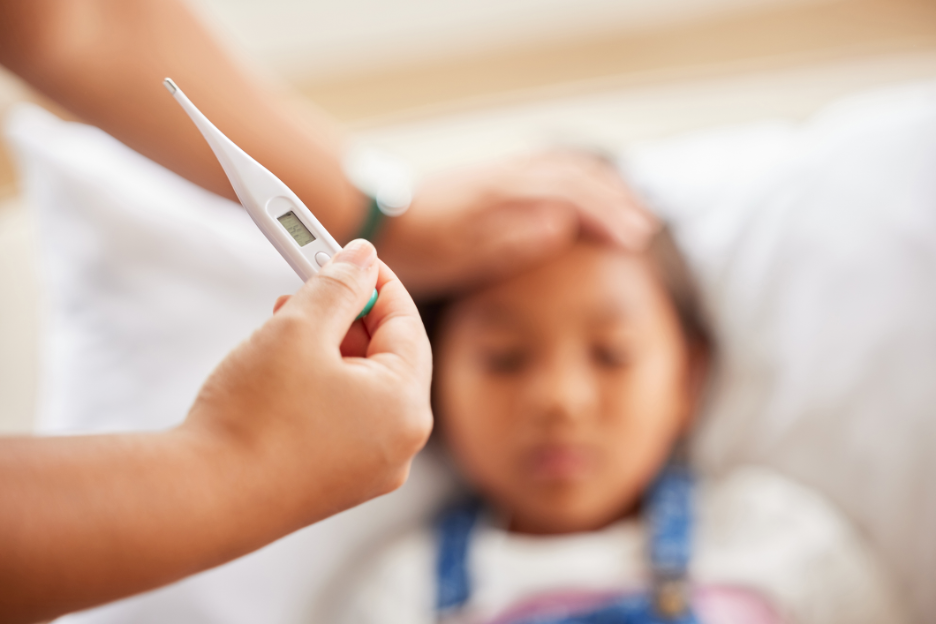If your child suddenly wakes up with a fever or starts saying their stomach hurts, do you know exactly what to do? Is it okay to wait it out, or do you need to call the doctor immediately? These moments can be scary — while you don’t want to be that parent who rushes to the clinic over something minor, you also don’t want to miss a serious problem and regret not acting sooner.
Below, our pediatric care providers in Highland, Indiana are going to explain which symptoms usually go away on their own, and which symptoms demand immediate medical attention.
What is a common illness?
Young children, especially infants, don’t have strong immune systems yet. Their bodies are still learning to fight germs and bugs, and so it is very normal for children to catch colds or run a slight fever occasionally.
Most of the common childhood illnesses are not dangerous and usually resolve on their own in a few days. Still, you should take your child to a pediatric care provider in Highland, Indiana to make sure that nothing major is going on under the surface. It could be a cold, or it could be something that looks like a cold but is a lot more serious.
There are times when it is not okay to wait.
While many colds and mild symptoms can be managed at home, there are some symptoms that demand urgent medical attention. For example, if your baby is younger than 2 months and has a fever of 100.4°F or higher, that is an emergency. Even a mild fever in a newborn could be the first sign of a serious infection, and you don’t want to risk it.
Breathing problems should also be considered a medical emergency. If your child is breathing very fast, their nose is flaring when they breathe, they are grunting and wheezing, or you can see their chest pulling in with each breath (also called “retraction”), they may have respiratory distress and not just a stuffy nose. These symptoms can start out looking like a regular cold but can quickly become something more serious, like asthma or pneumonia.
Then there is stomach pain. Mild stomach pain is normal, but a sharp pain in one specific spot (especially the lower right side), especially if it comes with vomiting or a fever, could be appendicitis.
In all these cases, consulting an experienced pediatric care provider in Highland, Indiana can keep your child safe and stop their health from worsening.
The risk of dehydration and poisoning.
Infants and children are at higher risk of dehydration because they can’t always tell you when they are thirsty. So, when they are sick, it may not always be clear that they are getting dehydrated until the signs are really obvious. You might notice that their lips and tongue are dry. Their eyes could also look sunken, their skin could feel dry or kind of wrinkly, and their breathing could start to get fast and heavy.
Then, there is the risk of accidental poisoning. A curious child might accidentally swallow something that they found under the sink or ingest a pill that looked like candy to them. Accidental poisoning is more common than you realize. According to the CDC, drug-related poisonings made up nearly 75% of poisoning deaths in young children between 2016 and 2019. It is scary, but it is preventable and even treatable if you do something about it as soon as possible.
Looking for an Affordable Pediatric Care Provider in Highland, Indiana?
Are you unsure about what your child’s symptoms really mean and whether you need to be worried about them? If so, and if you’re looking for a reputable pediatric care provider in Highland, Indiana who can offer personalized guidance, look no further than our specialists at 219 Health Network. Contact us today at 833-219-0001 to learn how we can help.


